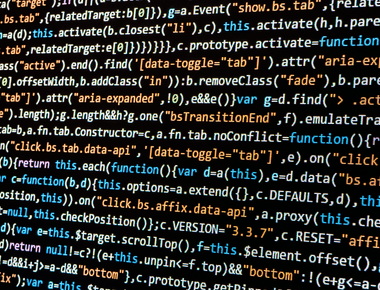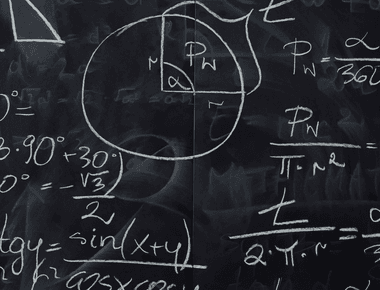
AI and Mathematics Education

The Power of AI in Mathematics Learning
Mathematics is a subject that has fascinated and challenged humanity for millennia. From enabling us to solve complex problems to providing us with the ability to understand abstract concepts, mathematics plays a vital role in all fields of study. As technology continues to advance, we find ourselves in an era where artificial intelligence (AI) is revolutionizing the way we approach and learn mathematics. In this blog post, we will explore the remarkable benefits, applications and challenges of AI in mathematics learning.
Understanding AI in Mathematics
AI refers to the development of computer systems that can perform tasks that typically require human intelligence, such as logical reasoning, complex problem-solving, and learning information. When it comes to mathematics, AI algorithms can already analyze vast amounts of data, identify patterns, and make predictions. An example of this in practice is with OpenAI’s ChatGPT which is built on vast amounts of publicly available data which it uses to create apparently thoughtful responses based on user input. Developing an AI mathematics tutor using a similar model could enable students to enhance their mathematical skills and understanding by asking it questions, as long as the AI was sufficiently constrained and had a prerequisite level of factual information which it could rely upon. In the event a mathematical tutor AI were to go outside the bounds of mathematical fact it would have failed in its purpose, so developing a strong system of constraints would be vital in this context.
Personalized Learning Experience
One of the significant advantages of incorporating AI into mathematics learning is the ability to provide a personalized learning experience for students. AI algorithms can assess a student’s strengths, weaknesses, and learning style through data analysis and adaptive assessments. Based on this information, the AI system can generate personalized learning pathways, tailoring the curriculum to meet the specific needs of each student. This individualized approach helps students grasp mathematical concepts more effectively and at their own pace.
Intelligent Tutoring Systems
AI-powered intelligent tutoring systems could revolutionize the way students receive guidance and support in mathematics. These systems could utilize AI algorithms to provide interactive and adaptive learning experiences at enormous scale. Intelligent tutors can analyze a student’s responses, identify areas of difficulty, and provide real-time feedback and explanations. By simulating one-on-one tutoring sessions, intelligent tutoring systems can enhance the learning process, identify misconceptions, and offer targeted interventions to help students overcome challenges in their mathematical journey.
Gamification and Engagement
Integrating AI into mathematics learning also opens the door to gamification and increased student engagement. AI algorithms can power educational games and interactive simulations that make learning mathematics more enjoyable and interactive. By adding elements of competition, rewards, and progress tracking, these gamified experiences motivate students to actively participate in their mathematical exploration. The combination of AI and gamification helps students develop a positive attitude towards mathematics and fosters a love for the subject.
Enhanced Problem-Solving Skills
Mathematics is synonymous with problem-solving, and AI could greatly enhance students’ problem-solving skills. AI algorithms can analyze large datasets and identify patterns that humans might overlook, enabling a human being to prove a rule in this context which they may not have noticed. By exposing students at the right time to AI-powered problem-solving tools, they can develop a deeper understanding of mathematical concepts and learn alternative strategies to approach complex problems. AI could offer students a fresh perspective and inspire creative thinking in mathematical problem-solving.
Ethical Considerations
While AI brings immense benefits to mathematics learning, it is essential to address the ethical considerations surrounding its use. Transparency and accountability are crucial when utilizing AI algorithms. It is important to ensure that AI systems are fair, unbiased, and inclusive, and that they respect student privacy and data security. Striking a balance between the power of AI and ethical considerations is key to harnessing its full potential in mathematics education.
Embracing the Future of Mathematics Learning
AI has the power to revolutionize mathematics learning and empower students to unlock their full mathematical potential. With personalized learning experiences, intelligent tutoring systems, gamification, and enhanced problem-solving skills, AI offers a world of possibilities for students to excel in mathematics. However, it is essential to approach AI implementation with careful planning, ensuring that it aligns with pedagogical goals and ethical standards.
As we embrace the future of mathematics education, let us harness the power of AI to create innovative and effective learning experiences that inspire the mathematicians of tomorrow. Together, we can embark on a transformative journey where AI and mathematics intersect, empowering students to embrace the beauty and relevance of this fundamental discipline. At Quantifold we believe that this journey is best taken transparently, so we hope that this shows our thinking on the subject.
In conclusion, the integration of AI into mathematics learning has the potential to revolutionize education by providing personalized learning experiences, intelligent tutoring systems, gamification, and enhanced problem-solving skills. Through AI, students can embark on a journey where mathematics becomes engaging, interactive, and tailored to their individual needs, all while being more scalable than traditional tutoring networks. We must however be mindful that the human touch is important for the development of human skills which are developed in human activities. Mathematics is a human activity and must be treated as such, utilising AI as simply a tool which may be used as a sounding-board to develop solutions.
It is essential to approach the use of AI in mathematics learning with careful consideration of ethical implications. Transparency, fairness, inclusivity, and privacy should always be at the forefront of AI implementation. Striking a balance between harnessing the power of AI and addressing ethical considerations is crucial for the successful integration of AI into mathematics education.
As we move forward, let us embrace the possibilities that AI offers in mathematics learning while also ensuring that it aligns with pedagogical goals, ethical standards, and the unique needs of every student. By embracing the future of mathematics education, we can unlock the full potential of AI-enabled tools and empower students to excel in their mathematical journey, paving the way for a new era of mathematical discovery and innovation.
References:
- LeCun, Y. et al. (2015). Deep learning. Nature, 521(7553), 436-444. Link
- bin Mohamed, M.Z. (2020). Artificial intelligence in mathematics education. International Electronic Journal of Mathematics Education, 17(3), em0694, e-ISSN: 1306-3030 Link
- Celik, I., Dindar, M., Muukkonen, H. et al. The Promises and Challenges of Artificial Intelligence for Teachers: a Systematic Review of Research. TechTrends 66, 616–630 (2022). DOI.





